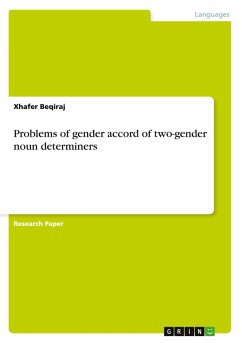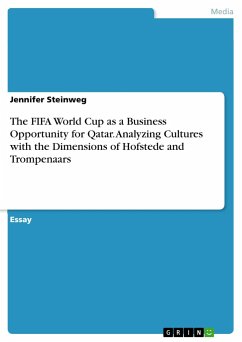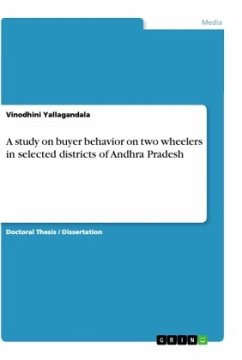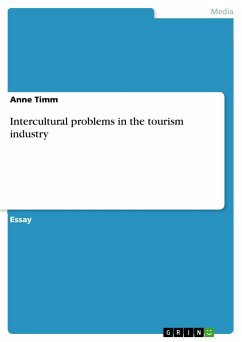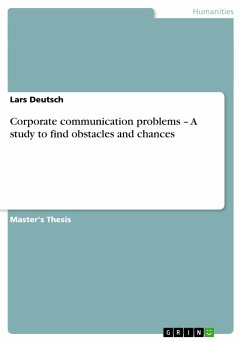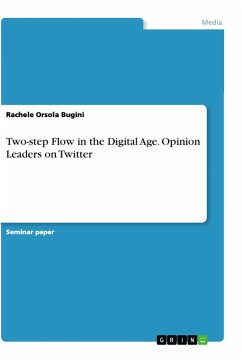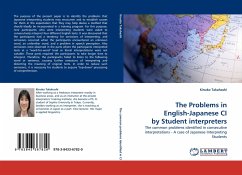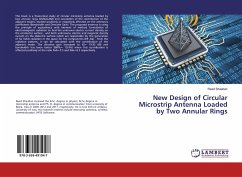Research Paper (postgraduate) from the year 2014 in the subject Speech Science / Linguistics, grade: Master & (PhD Candidat), University of Prishtina (ALG "Loyola Gymnasium" - Prizren), course: Linguistik - Albannian, language: English, abstract: Language phenomenon of two-gender (heterogeneous) nouns, which appears in some Indo-European languages, has for a long time drawn attention of linguists. This phenomenon appeared in languages such as Italian, Romanian, Slovakian, Czech and Albanian.In each of these languages, nouns of this category in singular are of masculine gender, but in plural they are transformed into feminine gender. This is known as two-gender phenomenon. Nouns which are classified into this category, denominate mainly non animated beings, things or abstract notions, such as: element-i element- (element) vend-i - vend-e (place), qytet-i - qytet-e (city(, kryeqytet-i - kryeqytet-e (capital city) breg-u - brigj-e ( hill), lloj-i - lloj-e (type), send-i - send-e (thing), djep-i - djepe (cradle), etc; vaji -vajra (oil), fshat-i -fshatra (village), debat-i - debat-e , drithë-i - drithëra ( corn) ujë-i - ujëra, ( water),lesh-i - leshra ( wool)), mall-i - mallra (goods), të qeshura (laughs) etc. In this category are also some nouns which denominate human beings, such as; personazh-personazhe (character), ekipazh-ekipazhe (crew), personalitet-personalitete (personality), ekip-ekipe (team), insekt-insekte (insect), bakter-baktere (bacteria), virus-viruse (virus), mikrob-mikrobe (microbe) etc. So in Albanian language two-gender nouns are those of masculine gender (a group of which primarily were of neuter gender) which form the plural by adding suffixes -e and -ra.
Hinweis: Dieser Artikel kann nur an eine deutsche Lieferadresse ausgeliefert werden.
Hinweis: Dieser Artikel kann nur an eine deutsche Lieferadresse ausgeliefert werden.

